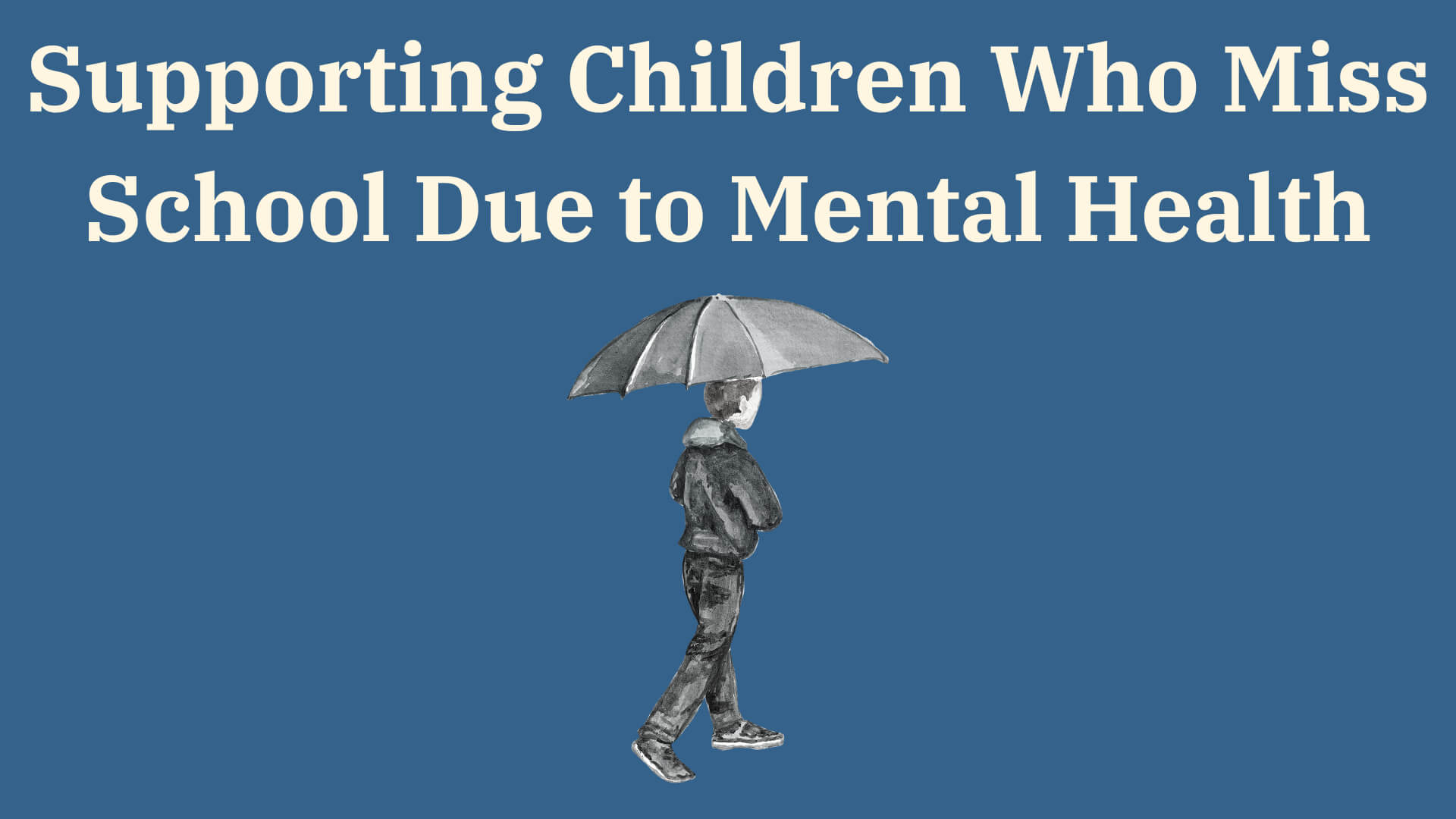Explore insights, updates and real-world impact from across the Studybugs community. From school absence trends to public health innovation, our blog shares stories and ideas that help keep children happy, healthy and in school.
Supporting Children Who Miss School Due to Mental Health

We all know the benefits of keeping children in school. So when mental health issues become a barrier to attendance, it’s vital to support children to ensure they feel able to attend school consistently. By working together with families, and engaging partners like local authorities and healthcare providers where necessary, schools can empower children to overcome challenges and thrive academically and personally.
In this blog post, we explore how to take a structured, compassionate approach to supporting pupils who miss school due to mental health issues.
So without further ado, here are five creative ways to improve school attendance.
Create an Inclusive Environment
To start, let’s take a look at what you can do to support children’s mental health in school generally. That comes down to creating a supportive and inclusive school environment.
A supportive and inclusive school environment fosters better outcomes for students facing mental health challenges. Schools should train staff on mental health awareness and implement whole-school approaches that reduce stigma and promote emotional wellbeing.
Of course, even in the best environment, there are going to be children who miss school for mental health-related reasons.
So what can you do when that happens?
Identify Issues and Intervene Early
Schools play a pivotal role in spotting early signs of mental health struggles. After all, children spend a lot of time in school and have a lot of significant relationships there.
School staff can take a two-pronged approach to identifying pupil absences where mental health is a factor. The first is, of course, in a pastoral capacity. Staff who work closely with children will be some of the best-placed people to spot any changes in behaviour. Pupils may be withdrawn, start acting out, or become disengaged with school.
The second prong is checking the attendance data. If a child who was attending well suddenly has gaps in their attendance, it could indicate a deeper issue. Look for patterns in their absences. Do they struggle to come back to school after weekends or holidays? Do they miss a certain lesson regularly? Whether there’s an obvious pattern or not, if you think something’s wrong, it’s time to talk to them.
Establish and Maintain Communication with Families
Parents and families are critical partners in supporting children with mental health-related attendance issues. They need to actively participate in monitoring their child’s progress and provide emotional support, and their input will have a huge impact on the success of any support plans (see below for more on this).
As such, they need to be supported in their role. Fostering an open, collaborative relationship between schools and parents is key to ensuring they can support their children in attending school.
Parents may also need their own support. They might find it hard to talk about their difficulties getting their child to school. Or the child’s attendance issues could be triggered by something home-related like a divorce or separation. As a school, you can help by keeping in regular contact with parents and agreeing how and when you’ll keep in touch.
Devise Tailored Support Plans
Schools are advised to create tailored support plans for children whose attendance is affected by mental health. These plans should reflect the child’s unique needs, providing them with the support they need to feel comfortable attending school.
The plan should be agreed with the parents or guardians and the pupil, and staff who come into contact with the pupil need to be aware of it. If necessary, you might want to offer adjustments such as flexible timetables, modified workloads, or a phased return to school.
Also, remember that progress is not likely to be in a straight line. You might have a good week followed by a bad one. Keep on top of how your plan is working, and make a note of progress and any setbacks so you know if you need to make any changes.
You should also involve the child and their parents or guardians in any review. It’s a good opportunity for you all to celebrate successes and talk through things you’re finding difficult. Hopefully, the review process will be positive for everyone as you see progress being made.
Engage External Support When Necessary
Of course, school staff are not expected to diagnose mental health conditions or know exactly how to deal with every situation. Where external help is needed, you might want to discuss plans with your local authority, as they can help coordinate with healthcare providers such as Child and Adolescent Mental Health Services (CAMHS) to ensure support for your pupil.
Families are also encouraged to seek professional help when needed and engage with school-recommended services. These services might be included in your support plan, so effective support will often rely on collaboration between schools, families, local authorities and healthcare providers.
Compassion is Key
Lastly, just remember that children are likely to respond best when they feel supported. The more you can do to show them you’re on their side, the better.
I hope you find the guidance above useful. For further help, you can find the DfE’s full guidance on your responsibilities here.
— Lucas Abbott